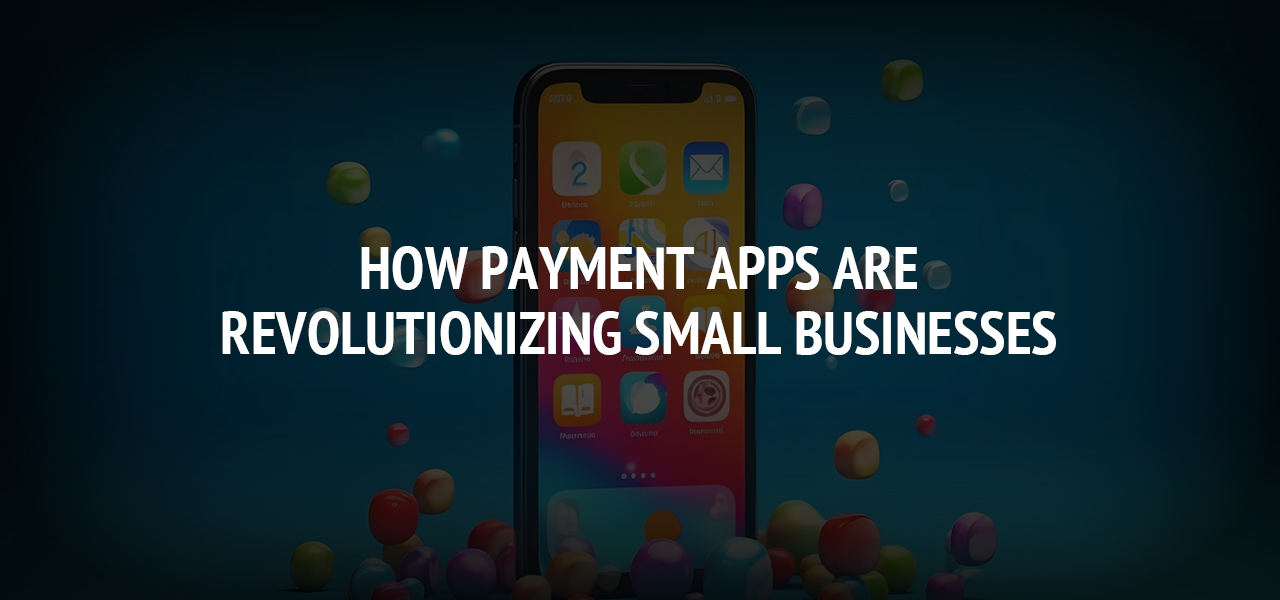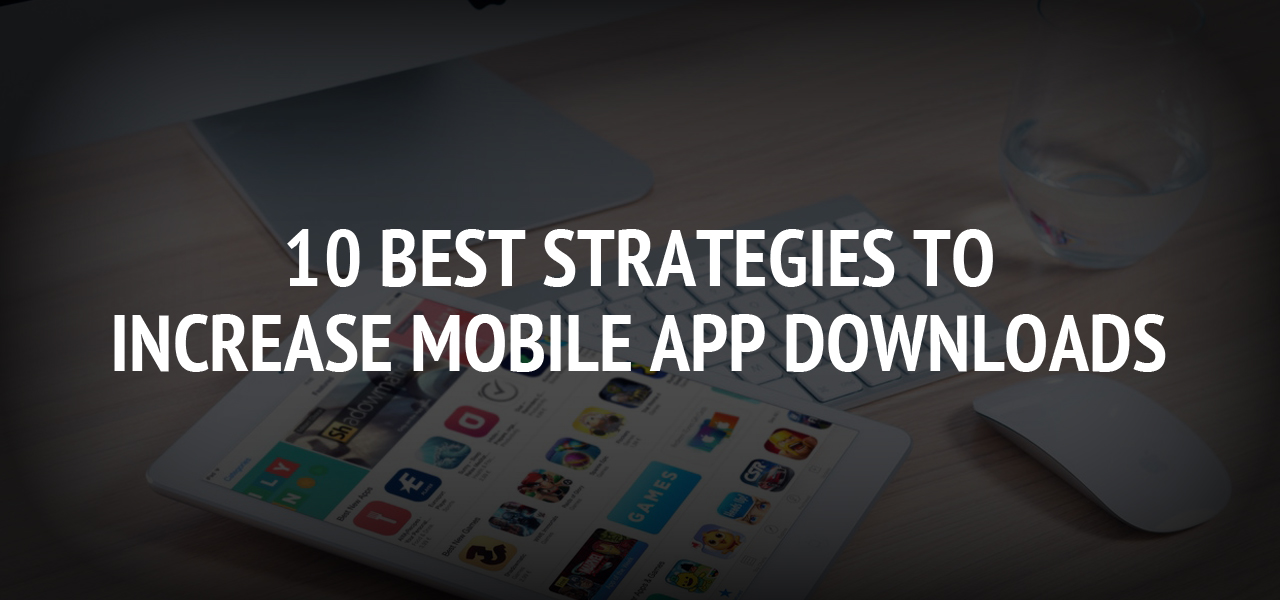How Payment Apps are Revolutionizing Small Businesses

Payment apps, the powerful catalysts behind modern commerce, are on the verge of revolutionizing small businesses like never before.
According to the latest statistics from Statista, mobile payment technology is set for major growth. Between 2020 and 2025, it is expected to double, and the numbers are even more startling.
With one touch, by simply approaching a terminal or entering online trading areas with a smartphone containing the proper app and card details, shoppers can now conveniently make their purchases. These apps have turned everything on its head. But exactly how can they help your small business?
Let's dive into the incredible world of payment apps and find out.
The Rise of Payment Apps
In recent years, payment apps have become popular as these apps provide convenience for online purchases. With smartphones becoming more prevalent and the demand for effortless online transactions on the rise, it's no wonder these apps have become an essential aspect of our daily lives.
Payment apps make financial transactions a lot simpler, for example from splitting bills with friends to purchases at online shops. You may be wondering how these might benefit your small company. Now let's go specific:
1. Streamline Payment Efficiency
Payment efficiency is one of the most prominent advantages that small businesses can get from using payment apps. Cash and checks are traditional payment methods, but they involve time-consuming procedures and records that have to be kept by hand. Automation of these tasks through payment apps helps reduce the chance of human errors and makes payments faster.
Moreover, with the growing reliance on mobile payment solutions, developers have been creating libraries specifically designed to enhance payment processing. These libraries for payment processing can significantly boost the efficiency of your payment app. You might find it beneficial to explore the top-rated libraries for payment processing available for your Android app in a dedicated blog post.
- Quick and seamless transactions: Payment apps enable businesses to accept payments swiftly, both in-store and online, reducing waiting times for customers.
- Digital receipts and records: With payment apps, you can easily generate digital receipts and maintain organized records, simplifying accounting and auditing processes.
- Automatic reconciliation: Payment apps often integrate with accounting software, making it easier to reconcile transactions and track financial data.
2. Expand Payment Options
Expanding payment options is an essential strategy for small businesses in today's diverse marketplace. By integrating payment apps into your business model, you can accommodate a wide range of customer preferences. Here's how it can benefit your business:
- Accept a Variety of Payment Methods: With payment apps, you can accept traditional methods like credit and debit cards, as well as modern contactless services like Apple Pay or Google Wallet. Moreover, embracing newer forms of payment such as cryptocurrencies can cater to a niche market segment.
- Attract More Customers: Diverse payment options can draw in a broader customer base. Particularly, younger and tech-savvy customers who prefer cashless transactions will find your business more appealing if it supports their preferred payment methods.
- Stay Competitive: In a market where customer convenience is paramount, offering modern payment methods is a significant competitive advantage. Businesses limited to traditional payment forms may lose out to competitors who provide more flexible options.
- Recurring Payments: For businesses with subscription models or recurring services, payment apps can streamline the process of collecting payments. This not only ensures consistency in revenue but also enhances customer convenience by automating their payment process. Leveraging payment apps for subscription-based models can significantly simplify the collection process, ensuring consistent revenue and enhancing customer convenience with automated transactions. To delve deeper into optimizing these systems, get insights on recurring payments for a comprehensive understanding and effective implementation.
3. Elevate Customer Experience
Customer experience is an important facet of any small business's success. In addition to improving the overall customer experience, payment apps make for a convenient and secure payment process.
- Contactless payments: Payment apps support contactless payments, allowing customers to complete transactions quickly and without physical contact – an essential feature during health crises like the COVID-19 pandemic.
- In-app features: Many payment apps come with additional features like loyalty programs, digital coupons, and rewards, enhancing customer engagement and loyalty.
- Security measures: Payment apps prioritize security, employing encryption and authentication measures to protect both your business and your customers from fraud and data breaches.
4. Maximize Cost Savings
Small businesses often operate on tight budgets, making cost savings a top priority. Payment apps can help reduce operational costs in various ways.
- Lower transaction fees: Payment apps usually levy lower transaction fees than credit card processors, which should save your organization money.
- Eliminate the need for costly hardware: Payment apps You can process payments on a smartphone or tablet, so you don't need expensive point-of-sale (POS) terminals.
- Reduced administrative overhead: Automated payment processing and record-keeping reduce the need for additional staff or administrative work, further lowering operational costs.
5. Embrace Accessibility and Mobility
Payment apps offer the flexibility and mobility that small businesses need to thrive in today's dynamic marketplace. As a business owner, you can process payments and manage finances from virtually anywhere with an internet connection.
- On-the-go payments: Payment apps allow you to accept payments at events, pop-up shops, or while providing services at customer locations, expanding your business's reach.
- Remote management: You can monitor transactions, view financial reports, and manage your business finances remotely, giving you more flexibility in managing your operations.
6. Leverage Analytics and Insights
Data is an important tool for both decision-making and growth. Payment apps provide businesses with significant information on their financial performance, customers 'behavior and sales trends.
- Real-time analytics: Many payment apps offer real-time reporting and analytics, enabling you to make informed decisions promptly.
- Sales tracking: You can monitor your best-selling products or services, helping you tailor your offerings to meet customer demand effectively.
- Customer behavior analysis: Payment apps provide data on customer spending patterns, enabling you to create targeted marketing campaigns and loyalty programs.
4 Popular Payment Apps for Small Businesses
Here are the popular payment apps for small businesses.
1. FacilePay
FacilePay is a user-friendly payment app designed specifically to streamline transactions for small businesses.
- Efficient Card Payments: Seamlessly accept card payments for secure and swift transactions.
- Paperless Invoicing: Streamline billing processes, reduce environmental impact, and minimize errors.
- Global Multi-Currency Support: FacilePay supports over 135 currencies, ideal for international businesses.
2. Square
Square offers comprehensive solutions, including POS systems and e-commerce integration.
- Versatile Solutions: Comprehensive POS systems and seamless e-commerce integration.
- Mobile Payment Processing: Mobile app for swift payments, perfect for businesses on the move.
- Enhanced Mobility: Maximize mobility, accept payments anywhere, and offer a secure customer experience.
3. PayPal Here
PayPal Here is a trusted extension of PayPal, providing a reliable mobile card reader and app.
- Payment Diversity: Accept various payment methods for both online and in-person transactions.
- Invoicing Ease: Streamline billing with invoicing capabilities, ideal for service-based businesses.
- Trustworthy Brand: Backed by PayPal's trust and recognition, inspiring customer and business confidence.
4. Stripe
Stripe is a developer-friendly payment processing platform, known for seamless online payments.
- Developer-Centric: Robust API and customization options for developers and e-commerce businesses.
- Online Payment Simplified: Simplifies online payment acceptance, providing a seamless experience.
- Advanced Solutions: Attracts businesses seeking customization and advanced online payment options.
The Future of Payment Apps for Small Businesses
Here is an explanation of the future of payment apps for small businesses.
1. Integration with Business Tools
- Payment apps are likely to offer more seamless integration with a variety of essential business software, such as inventory management, customer relationship management (CRM), and accounting tools.
- Enhanced integration capabilities will streamline operations and reduce manual data entry, ultimately saving time and reducing errors for small businesses.
2. Contactless Payments
- The adoption of contactless payment methods, including NFC (Near Field Communication) and QR codes, is expected to continue growing.
- Customers increasingly prefer contactless options for their convenience and safety, and payment apps will need to provide robust support for these methods.
3. AI and Data Analytics
- Payment apps are likely to incorporate artificial intelligence (AI) and data analytics to offer small businesses valuable insights into customer behavior.
- These insights can help businesses make data-driven decisions, optimize pricing strategies, and tailor marketing efforts for better customer engagement.
4. Blockchain and Cryptocurrency
- Some payment apps have already begun exploring blockchain technology and cryptocurrency payments.
- The adoption of digital currencies as a payment option will likely expand, allowing small businesses to tap into a growing customer base interested in these alternative forms of payment.
5. Enhanced Security
- When coupled with the constant threat of cyberattacks, the negative impact will force payment apps to improve their security functions.
- Stronger security measures will safeguard businesses and customers from fraud, data thefts, and other threats, assuring trading.
Conclusion
Payment apps have transformed small businesses, streamlining payments, offering diverse options, and enhancing customer experiences while saving costs. They provide accessibility, allowing business owners to manage transactions from anywhere.
As technology evolves, payment apps will continue to adapt, integrating with business tools, supporting contactless payments, and ensuring security. Embracing this revolution can lead to greater efficiency and a brighter financial future for your small business.
About The Author
Related Blog
View All-
How Long Does It Take to Develop a Mobile App?
In today's digital age, having a mobile app is essential for businesses that want to stay competitive and remain relevant. As more people are using their smartphones to access the internet, it has become increasingly important for companies to have an app that ...
-
10 Best Strategies to Increase Mobile App Downloads
Compelling people to download your app is an achievement. In case you do not know, app developers submit approximately 2,000 apps on Apple App Store and Google Play Store daily, hoping it will be the next best thing. Unfortunately, the majority of apps out there ...







